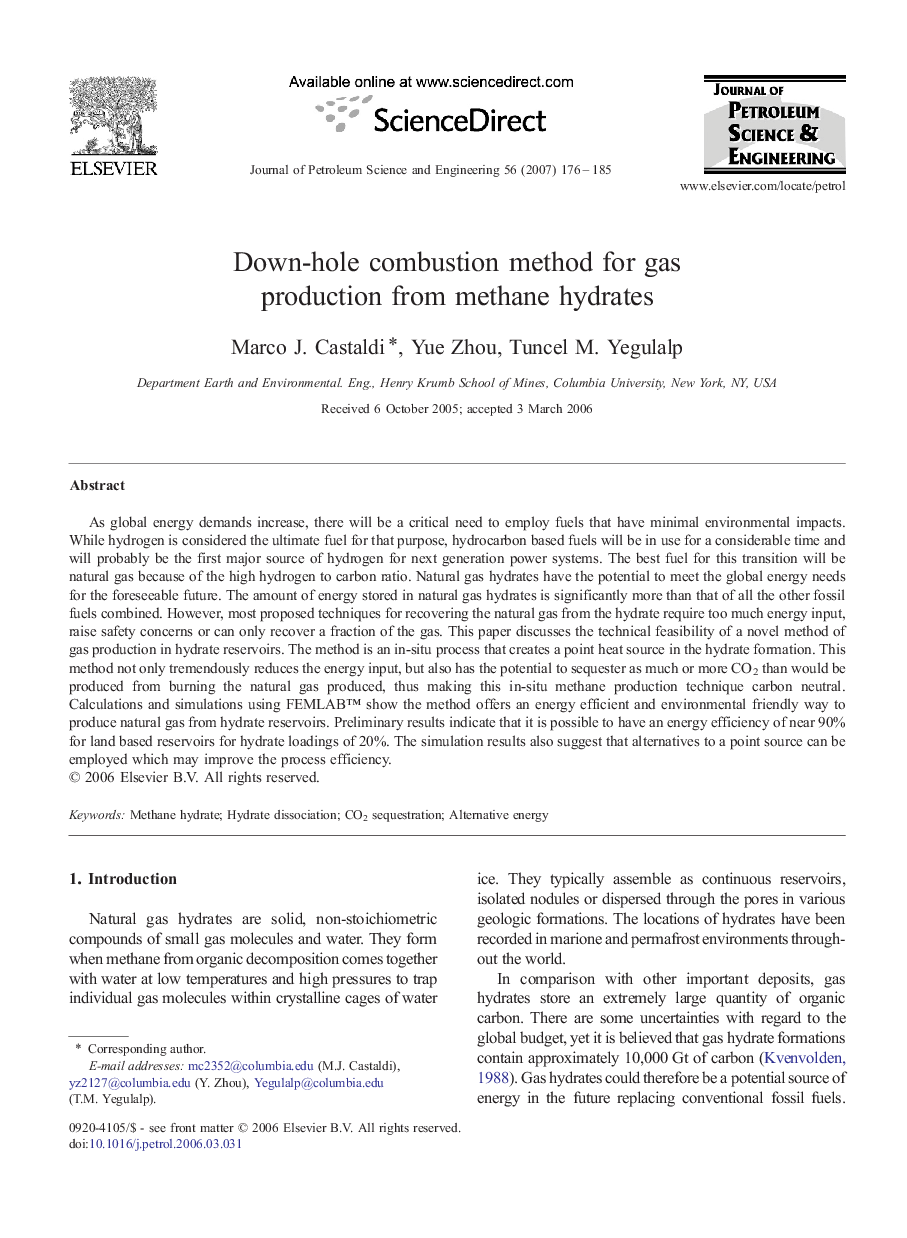| Article ID | Journal | Published Year | Pages | File Type |
|---|---|---|---|---|
| 1756450 | Journal of Petroleum Science and Engineering | 2007 | 10 Pages |
As global energy demands increase, there will be a critical need to employ fuels that have minimal environmental impacts. While hydrogen is considered the ultimate fuel for that purpose, hydrocarbon based fuels will be in use for a considerable time and will probably be the first major source of hydrogen for next generation power systems. The best fuel for this transition will be natural gas because of the high hydrogen to carbon ratio. Natural gas hydrates have the potential to meet the global energy needs for the foreseeable future. The amount of energy stored in natural gas hydrates is significantly more than that of all the other fossil fuels combined. However, most proposed techniques for recovering the natural gas from the hydrate require too much energy input, raise safety concerns or can only recover a fraction of the gas. This paper discusses the technical feasibility of a novel method of gas production in hydrate reservoirs. The method is an in-situ process that creates a point heat source in the hydrate formation. This method not only tremendously reduces the energy input, but also has the potential to sequester as much or more CO2 than would be produced from burning the natural gas produced, thus making this in-situ methane production technique carbon neutral. Calculations and simulations using FEMLAB™ show the method offers an energy efficient and environmental friendly way to produce natural gas from hydrate reservoirs. Preliminary results indicate that it is possible to have an energy efficiency of near 90% for land based reservoirs for hydrate loadings of 20%. The simulation results also suggest that alternatives to a point source can be employed which may improve the process efficiency.
